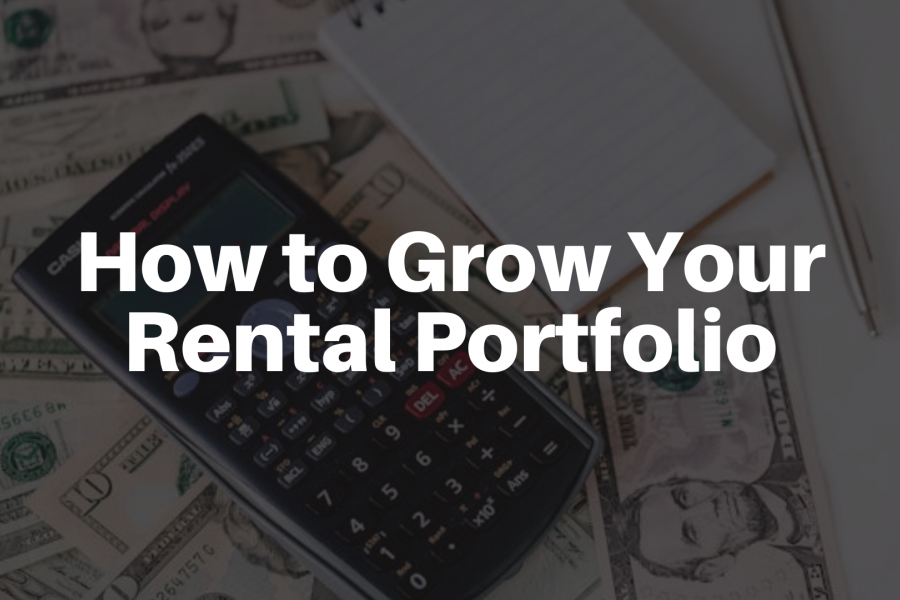How to Grow Your Rental Portfolio

Renting out your property in Denver can be a highly profitable venture. The need for rental accommodations has skyrocketed in recent years. By finding reliable, long-term tenants, you can gain an additional source of income. However, it’s important to note that one or two rental properties are not enough to provide you with a stable source of income.
While rental earnings are higher than ever, successfully managing a rental property signifies an ongoing investment. Maintenance costs, cleaning supplies, contractor invoices, property manager fees, and property taxes can significantly reduce your earnings. If you want to quit your job and live off your rental investments, you’ll need to grow your portfolio significantly.
Expanding your rental portfolio requires ample planning and careful consideration. This can seem like a daunting and challenging task, but it doesn’t have to be that way! In this article, the experts at Evolve Real Estate and Property Management will provide you with a step-by-step guide to growing your portfolio in a safe and stress-free manner. Let’s dive in!
Assess Your Risk Tolerance
Unfortunately, real estate investments don’t come without risks. Even if property values have grown steadily in recent years, we can’t know for sure if this trend will continue or if it’ll change, resulting in lower property values.

If you’re planning to invest in real estate for the long term, you must evaluate your risk tolerance. Ask yourself, how much you would be willing to invest and how much of that you would mind losing to ensure the long-term profitability of your investment. If you’re not a big fan of risks, you’d be better off investing in well-known neighborhoods with a stable rental market, rather than in newly developed areas or run-down properties.
Define Your Investment Goals
The key to a successful investment is a plan. Purchasing a property without a strategy can lead you to overspending, making rushed decisions, and not making the most out of your investment. That’s why you must sit down and create an investment plan that will help you reach your long-term goals before you start browsing for properties for sale in your area.
The first step to creating an investing strategy is to define your long-term goals. Ask yourself how much you want to grow your portfolio. By determining your long-term goals, you’ll be able to set smaller, short-term goals that will help you achieve them, such as saving for the deposit or securing pre-approval.

Determine What Type of Properties You’ll Invest In
The only way to grow your rental portfolio is by purchasing more properties. But it’s crucial that you determine what type of properties will help you achieve your long-term investment goals. Here are the common types of properties real estate investors purchase to turn into rental properties:
- Single-Family Homes. These types of properties tend to attract more long-term tenants, providing a more stable income. However, single-family homes make up only one rental unit, meaning that your income will be very limited if you only own one or two properties.
- Multi-Family Homes. Duplexes, triplexes, and fourplexes make great rentals because they provide multiple streams of income and also allow for house-hacking. Additionally, by having several units, you’ll minimize the financial risks of vacancies. However, purchasing a multi-family home requires a higher upfront cost, as well as higher operational expenses.
- Apartment Buildings. Purchasing an apartment building will allow you to expand your portfolio more quickly, providing a higher income potential and more stability. However, securing financing for an apartment building is not easy. Additionally, they’re harder to manage and operate than smaller properties.
- Vacation Rentals. If you live in an area with strong tourism, vacation rentals can be a great investment. They tend to provide higher rental income during peak seasons and can be utilized for personal use during the off-season. However, these types of rental properties don’t offer a stable income and tend to come with high maintenance and advertising costs.
- Commercial properties. As cities grow, so does the need for commercial spaces, from offices to retail stores. If you live in a growing city, purchasing commercial properties can be a great investment. However, it’s important to keep in mind that these types of properties come with complex management, a higher risk of vacancies, and expensive repairs.
Research the Local Real Estate Market
While the rental market is fairly stable, this doesn’t mean that every investment will pay off. After all, not all markets offer the same profits or have the same tenant demand. Before you start looking online for available properties in your area, you must assess the current market conditions. Keep an eye on metrics such as economic indicators, vacancy rates, rental trends, and vacancy rates. This will help you determine whether a certain area is good for real estate investments.

Secure Financing
One of the main reasons why investors prefer the real estate market over stocks is that it allows for the use of leverage. If you’re thinking about growing your rental portfolio, you only need to save up for the down payment and closing fees. You can pay the rest of your investment with a loan.
Obtaining financing is key to growing your portfolio sustainably. Make sure to explore different financing options, such as conventional mortgages, FHA loans, and private financing, to find the best terms for your investment. Consider factors like interest rates, loan terms, down payment requirements, and their impact on your monthly cash flow. Securing proper financing can reduce your financial burden and increase your ROI over the long term.
Partner with Real Estate Experts
Networking with local experts, such as real estate agents, property managers, and other investors can give you firsthand insights into the local market. Moreover, by partnering with a seasoned property management company, you’ll get access to many resources to help your rental investments succeed. Property managers can help you with anything from finding the perfect property to grow your portfolio to managing the day-to-day operations of your rentals.
Bottom Line
Owning one rental property won’t provide you with sufficient income to live or secure a comfortable retirement. By growing your rental portfolio, you can secure a more stable source of income and minimize the financial risks of vacancies. Additionally, a portfolio will provide you with better economies of scale, tax benefits, and wealth-building opportunities! By determining your risk tolerance, setting your long-term goals, researching the local market, and securing financing, you can grow your rental portfolio in a more sustainable manner.
If you’re thinking about purchasing a rental property in Denver, contact Evolve Real Estate and Property Management today! With our deep knowledge of the rental market, we can help you find the perfect property to grow your portfolio.
